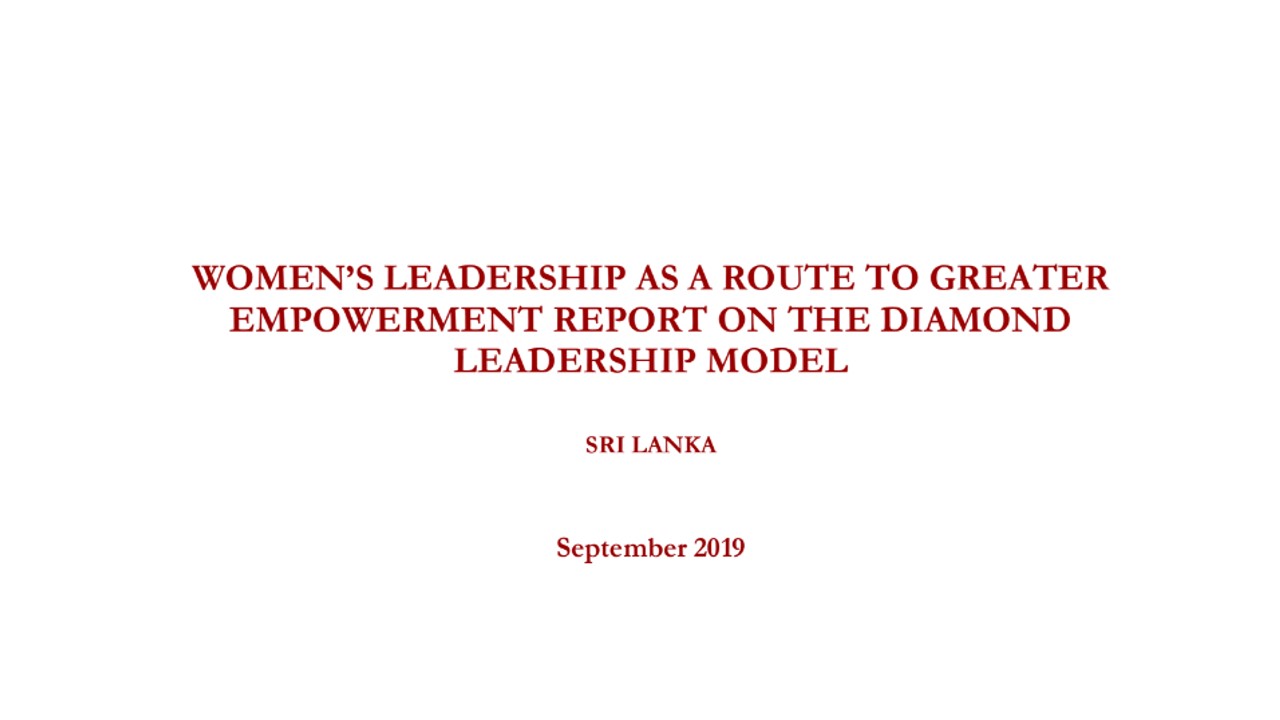Diamond Leadership Study on Women Political Empowerment in Sri Lanka (2019/2020)
The Centre for Policy Alternatives together with the Sri Lanka Democratic Governance Assistance Project (SDGAP) of USAID conducted a study to analyze the progress of women’s advancement in Sri Lanka as well as factors supporting and barriers hindering it in Sri Lanka. The Diamond Leadership Model (DLM) focuses on women’s empowerment at three levels (High, Mid and Low) and measures the effectiveness of women’s leadership in the legislative, executive, judicial and security sectors. This study frames key recommendations based on its findings which will help the government and civil society institutions working on women’s leadership and political empowerment, to design and implement their respective programs and policy initiatives more effectively.
This study consists of two components; one involves collecting available data of women holding leadership positions in four sectors to generate the Women’s Power Score (WPS). The 12 indicators of the DLM combined to generate the Women’s Power Score (WPS) of Sri Lanka. To account for women’s representation at different tiers of all four sectors of governance, weighted scores for each sector are calculated. Women’s share of positions in the High tier is weighted three times as much as women’s share of positions in the Low tier, and women’s share of positions in the Mid-tier are weighted twice as much. The total score is divided by 6 to find the country-level WPS.
The quantitative part of the study comprises of finding the above-explained WPS which included a primary quantitative data collection mainly via desk research. Desk research covered relevant data published in official websites, authenticated previous studies and reports, national libraries including parliament library, national newspapers, and public documents available in respective government institutions. With the data received, the women’s power score was measured, and an analysis carried out in comparison with other countries in which this study has been applied.
The qualitative research included a series of face-to-face interviews with 48 key individuals in which their ideas on women’s political empowerment in the country were brought into perspective. The findings were gathered through structured questionnaires for each sector, then analyzed to explore the non-numerical factors that underlie women’s advancements among other prospects.
The project offered an advanced understanding of the nature and extent of women’s leadership and political empowerment and examined the actual share of women’s representation using 12 indicators that cover three tiers; high, mid, and low positions in four government sectors; the executive, legislature, judiciary and security. It helped identify major trends and challenges about women’s leadership in Sri Lanka based on the DLM.
FINAL_DLM Study_Sri Lanka_30_09_2019
This post is also available in: English සිංහල



